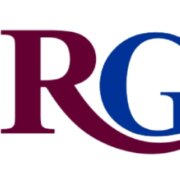Best Arrests & Searches Lawyers in Gaborone
Share your needs with us, get contacted by law firms.
Free. Takes 2 min.
List of the best lawyers in Gaborone, Botswana
About Arrests & Searches Law in Gaborone, Botswana
Arrests and searches law in Gaborone, Botswana is governed by the Constitution of Botswana, the Penal Code, and the Criminal Procedure and Evidence Act. These laws outline the rights of individuals during arrests and searches, stipulating the procedures that law enforcement officers must follow. The legal framework seeks to balance the need for public safety with the protection of individual rights, ensuring that citizens are treated fairly and that abuses of power are minimized.
Why You May Need a Lawyer
Legal advice can be invaluable in numerous scenarios involving arrests and searches in Gaborone:
- If you have been arrested and need to ensure your rights are protected
- If law enforcement has conducted a search of your property and you feel it was not lawful
- If you are facing criminal charges and need representation in court
- If you are unclear about your legal rights during interactions with law enforcement
- If you need to file a complaint against the police for misconduct
Having a lawyer can help you navigate the complexities of the legal system, ensure your rights are upheld, and provide you with the best possible defense or legal outcome.
Local Laws Overview
The following key aspects of local laws are particularly relevant to arrests and searches in Gaborone, Botswana:
- The Right to Legal Representation: Arrested individuals have the right to legal counsel and to be informed of this right upon arrest.
- Police Conduct: Police officers must follow procedural protocols during arrests and searches, including securing warrants where necessary.
- Search Warrants: A search warrant is generally required for property searches, except in cases of suspected imminent danger or during the pursuit of a suspect.
- Reasonable Suspicion: Arrests and searches must be based on reasonable suspicion or evidence of criminal activity.
- Human Rights Protections: The Constitution of Botswana guarantees human rights protections that limit police powers and protect individuals against unlawful detention and searches.
Frequently Asked Questions
What should I do if I am arrested?
Remain calm and cooperate. Request to speak with a lawyer immediately and do not make any statements to the police without legal counsel present.
Can the police search my home without a warrant?
Generally, the police need a search warrant to enter and search your home. Exceptions include situations where there is imminent danger or when the police are in hot pursuit of a suspect.
What are my rights during a search?
You have the right to know the reason for the search, to see the search warrant if one is required, and to have a lawyer present if possible.
How long can I be held in custody without being charged?
The police can hold you for up to 48 hours without charging you, but they must then present you before a magistrate to seek further detention.
Can I refuse a search of my person or property?
While you can verbally refuse, police may proceed if they have legal grounds such as a warrant or reasonable suspicion. Illegitimate searches can be challenged later in court.
What constitutes reasonable suspicion for a search or arrest?
Reasonable suspicion must be based on specific facts or circumstances that would lead a reasonable person to believe that a crime has been, is being, or will be committed.
What happens if my rights are violated during an arrest or search?
You can file a complaint with the Police Complaints Authority or seek legal action against the misconduct. A lawyer can guide you through this process.
Are the police allowed to use force during an arrest?
Police may use reasonable force necessary to make an arrest, but excessive force is illegal and can be contested in court.
Is there a legal aid system in Botswana?
Yes, Botswana has a legal aid system offering assistance to those who cannot afford a lawyer. You can apply for legal aid through the Legal Aid Botswana office.
Can I record my interaction with police during an arrest or search?
While there is no explicit law against recording your interactions with police, it is advisable to inform the officers that you are doing so. This can serve as evidence in case of misconduct.
Additional Resources
The following resources and organizations can be helpful if you need legal advice or support:
- Legal Aid Botswana: Offers free or subsidized legal assistance to qualifying individuals.
- Police Complaints Authority: An independent body to address complaints against police misconduct.
- Botswana Law Society: Provides a directory of qualified lawyers who can offer legal assistance.
- Ministry of Justice: Offers information and resources on legal rights and processes in Botswana.
Next Steps
If you need legal assistance related to arrests and searches, consider the following steps:
- Contact a Lawyer: Seek professional legal counsel. Lawyers can offer personalized advice and represent you in legal matters.
- Apply for Legal Aid: If you cannot afford a lawyer, apply for assistance through Legal Aid Botswana.
- Document Your Case: Keep detailed records of any interactions with law enforcement, including names, dates, and descriptions of events.
- File a Complaint if Necessary: If you feel your rights were violated, file a complaint with the Police Complaints Authority or seek legal recourse.
Taking immediate and informed action can significantly impact the outcome of your case. Always ensure your rights are protected by consulting with a legal professional.
Lawzana helps you find the best lawyers and law firms in Gaborone through a curated and pre-screened list of qualified legal professionals. Our platform offers rankings and detailed profiles of attorneys and law firms, allowing you to compare based on practice areas, including Arrests & Searches, experience, and client feedback.
Each profile includes a description of the firm's areas of practice, client reviews, team members and partners, year of establishment, spoken languages, office locations, contact information, social media presence, and any published articles or resources. Most firms on our platform speak English and are experienced in both local and international legal matters.
Get a quote from top-rated law firms in Gaborone, Botswana — quickly, securely, and without unnecessary hassle.
Disclaimer:
The information provided on this page is for general informational purposes only and does not constitute legal advice. While we strive to ensure the accuracy and relevance of the content, legal information may change over time, and interpretations of the law can vary. You should always consult with a qualified legal professional for advice specific to your situation.
We disclaim all liability for actions taken or not taken based on the content of this page. If you believe any information is incorrect or outdated, please contact us, and we will review and update it where appropriate.













